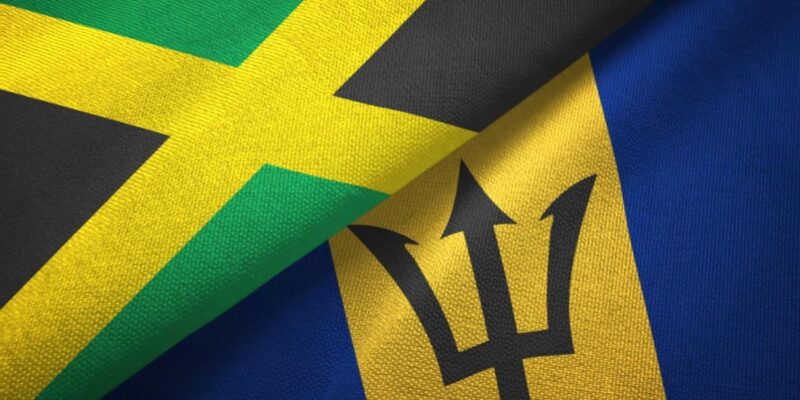
Onlookers often cannot fathom why Barbados and Jamaica have delivered such divergent outcomes despite their similar history as former colonies of England. Both countries achieved independence in the 1960s and inherited British law and institutions. Yet Barbados eclipsed her peers to become the pride of the developing world, whereas Jamaica recorded years of anemic growth and institutional degradation. However, digging deeper into history reveals that Barbados pursued different political economy paths from Jamaica.
Unlike Jamaica, Barbados was a settlers’ colony where planters were devoted to institution building rather than living off profits in England. Bajan planters thought that they represented the best of the West Indies. As gentlemen planters, elites aspired for Barbados to become a replica of Britain. Like their Bajan counterparts, Jamaicans also had access to management publications, but the island suffered from a high rate of absenteeism.
Scholars have theorized that absenteeism inhibited the progress of Jamaican plantations, but recent research argues that absenteeism was indicative of success because only the most successful planters could afford to hire external staff. Further, coffee plantations in Jamaica were less likely to suffer from absenteeism, and yet many crumbled. Therefore, the relevant point is that being in Barbados afforded Bajan elites the opportunity to contribute to institution building.
Though it was the norm for West Indian elites to send their children abroad to be educated, in Barbados the elite had established a sophisticated education system with 213 schools by 1834. Bajans elites were assiduously trained to govern the country with pride. Education and financial success were the hallmarks of a prosperous Bajan.
Free people of color, slaves, and working-class white people competed for employment in urban spaces, and notwithstanding racist sentiments, whites preferred competent blacks to incompetent whites. Of significance is that Barbados had a larger stratum of skilled slaves than Jamaica. As a result, Bajan blacks entered freedom at a more elevated position than black Jamaicans. Because black Bajans had acquired more human capital than Jamaicans, they matriculated more easily into the working and middle classes.
Conversely, Jamaican blacks were less educated and likely to prevent their children from attending school so that they could farm. Land was more available in Jamaica, so freed blacks preferred to migrate from plantations, and an oppositional peasant culture emerged. But geographical constraints limited black Bajans’ mobility and curbed their potential to develop an oppositional class. Instead, blacks opted to empower themselves through education or cooperation with planters after emancipation. Therefore, labor relations were less hostile in Barbados.
The cooperative relationship between blacks and white elites made reforms easier in Barbados. Bajans blacks arduously copied the white elite and even emulated their architecture. In contrast to Jamaica blacks, who were largely attached to the Baptist Church and other nonelite denominations, Bajan blacks embraced Anglicanism and subscribed to the ethos of the elites. Consequently, the bourgeois culture of the elite trickled down to the masses in Barbados.
Bajans hence had a different approach to politics than Jamaicans. Jamaican politics employed charisma and rabble-rousing to enthuse the masses, who exhibited a preference for charming leaders rather than technocrats. The charismatic Sir Alexander Bustamante, whose popularity catapulted him to success in Jamaican politics, would not have been successful in Barbados.
Andrew Dawson asserts that in Barbados such personalities were rejected at political meetings by voters, who contended that they were uninterested in the vilification of rival politicians. Unfortunately, Bustamante’s brand of politics succeeded in Jamaica to the extent that his tactics were copied by political rivals. Pork barrel schemes and violence emerged quite early in modern Jamaican politics. The pollution of Jamaican politics corrupted the public bureaucracy and led to worse social outcomes. Such factors were lacking in Bajan political culture.
Dawson attributes the success of Barbados to the astute leadership of progressive politicians like Grantley Adams and Wynter Crawford, who eschewed partisan politics and violence. He declares: “The fact that both progressive parties were more legal-rational in approach hindered the escalation of political violence (and thereby the institutionalization of patronage politics), the absence of which failed to send the island down a trajectory similar to that in Jamaica while also providing the foundation for a strong rule of law post-independence.”
The absence of these negativities in Barbados promoted high-quality governance and superior institutions. Jamaica is still plagued by pork barrel politics and cronyism. But the future could get better for Jamaicans if the government is serious about eliminating opportunities for corruption in the bureaucracy.
There is great talk about good governance and institution building in Jamaica. However, modernizing a country is a long process, so let’s see if Jamaica has the fortitude to evolve.








